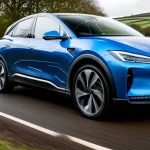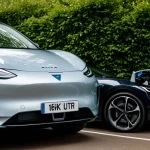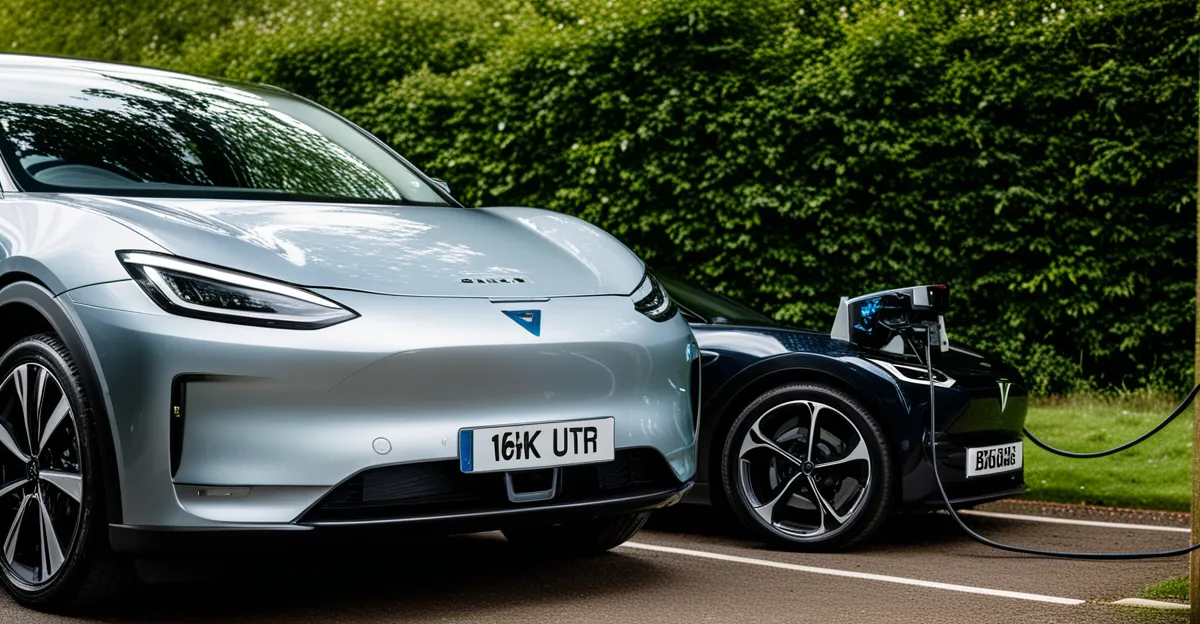Major Economic and Investment Barriers in the UK’s Shift to Electric Vehicles
The UK automotive industry investment faces significant hurdles amid the transition to electric vehicles (EVs). The most pressing challenge is the rising transition costs for manufacturers and supply chain partners. Shifting from traditional internal combustion engines to EV production requires substantial capital outlays in research, development, tooling, and reconfiguration of supply chains. These expenses strain both large automakers and smaller suppliers operating with tight margins.
Sustained government investment and incentives remain crucial to mitigating these economic challenges. Despite efforts to encourage EV development through subsidies and grants, industry stakeholders often cite the need for more consistent and long-term support to confidently commit resources. Without this backing, the UK EV market risks underperformance compared to global leaders who benefit from stronger financial frameworks.
This might interest you : How are UK car manufacturers adapting to the shift towards autonomous vehicles?
When comparing the UK automotive industry investment climate with top EV markets like Germany, China, and the United States, the UK falls behind regarding both direct funding and policy stability. These nations have made aggressive investments in EV technology, battery development, and charging infrastructure, creating a more attractive environment for innovation and scaling production. The UK must address these economic barriers to maintain competitiveness in the rapidly evolving global EV market.
Infrastructural and Supply Chain Hurdles
The UK EV charging infrastructure remains unevenly developed, posing a significant barrier to the UK EV market’s growth. While urban areas have seen improvements, rural regions often lack adequate public charging stations, limiting EV accessibility. For broader adoption, the UK requires expansive network upgrades to ensure reliable, fast-charging options nationwide. These advancements must align with increasing EV sales to prevent bottlenecks and range anxiety among users.
Also to read : Why Are Electric Vehicles Gaining Popularity in the UK Automotive Sector?
A critical issue lies within the EV battery supply chain. The UK currently depends heavily on imported battery cells, mainly from Asia, exposing the automotive sector to supply disruptions and geopolitical risks. Establishing domestic battery production capabilities is essential to enhance supply chain security and reduce lead times. Without this, the UK automotive industry investment risks being hampered by inconsistent battery availability, slowing EV manufacturing growth.
Moreover, UK automotive logistics face challenges caused by global supply chain disruptions, including shortages of semiconductors and raw materials. These delays increase production costs and extend vehicle delivery timelines, complicating the shift to larger-scale EV production. Addressing infrastructural and supply chain hurdles with targeted investments will be key to sustaining the UK EV market’s momentum and supporting industry resilience.
Technical and Manufacturing Challenges
The UK EV manufacturing sector faces pronounced hurdles related to workforce expertise and production capabilities. A key technical challenge is the shortage of skilled labor trained specifically for electric vehicle assembly and EV battery technology. Many existing workers require retraining to handle new components and assembly methods unique to EVs. Without accelerated upskilling programs, production efficiency risks lagging behind global competitors.
Large-scale battery production further stresses the industry. The UK has limited domestic facilities capable of producing batteries at the volume and quality needed for widespread EV manufacturing. This restriction constrains the full integration of EV battery technology into vehicle lines. Investments aimed at expanding domestic battery cell production are essential for overcoming cost and supply bottlenecks.
Upgrading factories to incorporate new EV assembly lines poses another barrier. Modifying infrastructure built for internal combustion engines demands significant capital and time. Efficiently integrating battery pack assembly, electric drivetrains, and associated electronics requires both technology access and manufacturing innovation. These combined challenges highlight the urgent need for strategic support to boost UK EV manufacturing and compete effectively on the global stage.
Regulatory Pressures and Policy Dynamics
Navigating UK government EV policy presents significant challenges amidst evolving emissions standards and zero-emission mandates. The UK has introduced ambitious targets requiring automotive manufacturers to phase out petrol and diesel vehicles by 2030. However, the shifting nature of these regulations generates uncertainty, complicating long-term planning for UK automotive industry investment. Manufacturers require clear, stable policies to allocate resources efficiently and innovate confidently in EV technology.
Brexit further complicates this landscape by altering automotive regulations and trade agreements. Changes in cross-border standards and certification processes increase operational complexities and costs for manufacturers reliant on integrated European supply chains. This fragmentation risks reducing the UK’s attractiveness as an EV manufacturing hub.
Moreover, inconsistency in policy signals—such as fluctuating subsidies or unclear enforcement timelines—hinders stakeholder confidence in the UK EV market. Clarity and coherence in government EV policies are critical to encourage sustained industry commitment. Transparent frameworks enable automakers and suppliers to better align strategies with national targets, accelerating the UK’s transition to zero-emission vehicles and securing its position within the global EV economy.
Consumer Adoption and Market Perception Issues
Consumer concerns about range anxiety, reliability, and charging accessibility remain significant barriers to UK EV consumer adoption. Many potential buyers worry whether current UK EV charging infrastructure can support longer trips, especially in rural areas with fewer stations. These range fears often discourage switching from petrol or diesel vehicles, despite improving battery technologies.
Price sensitivity also impacts electric vehicle public perception. EVs typically carry higher upfront costs compared to internal combustion engine cars, which can deter budget-conscious consumers. Although incentives help, many still perceive EVs as expensive luxury items rather than affordable options. This perception requires ongoing effort to communicate total cost benefits over time, including lower running costs and maintenance savings.
To overcome these barriers, strategies encouraging confidence are vital. Enhancing charging station availability and speed addresses accessibility issues directly. Public education campaigns clarifying EV reliability and environmental benefits can shift consumer attitudes positively. Financial incentives tailored to a broader income range increase affordability, helping to expand the buyer base.
Ultimately, tackling barriers to EV ownership through infrastructure, pricing, and awareness will accelerate the UK EV market growth, supporting the national transition to electric mobility.
Global Competition and UK’s Strategic Position
The UK’s progress in the global EV market trails behind leading innovation hubs like Germany, China, and the US, affecting its international competitiveness. These countries have aggressively invested in EV technology, infrastructure, and manufacturing capacity, enabling faster scaling and stronger market shares. In contrast, the UK’s slower investment pace creates risks of falling behind global EV industry standards, limiting its role in the rapidly expanding electric vehicle economy.
Comparing the UK vs EU EV transition, the UK faces heightened challenges due to trade and regulatory changes post-Brexit. While the EU strengthens unified policies and funding for EV adoption, the UK must navigate fragmented frameworks and develop independent strategies. This fragmentation can hinder seamless integration with continental supply chains and slow innovation cycles.
To enhance its strategic position, the UK requires greater international cooperation and adoption of best practices from leading EV markets. Collaborations in battery technology, charging infrastructure development, and policy alignment can boost UK competitiveness. Without such efforts, the UK EV market risks stagnation as global rivals continue advancing, threatening long-term industry growth and investment attraction.










